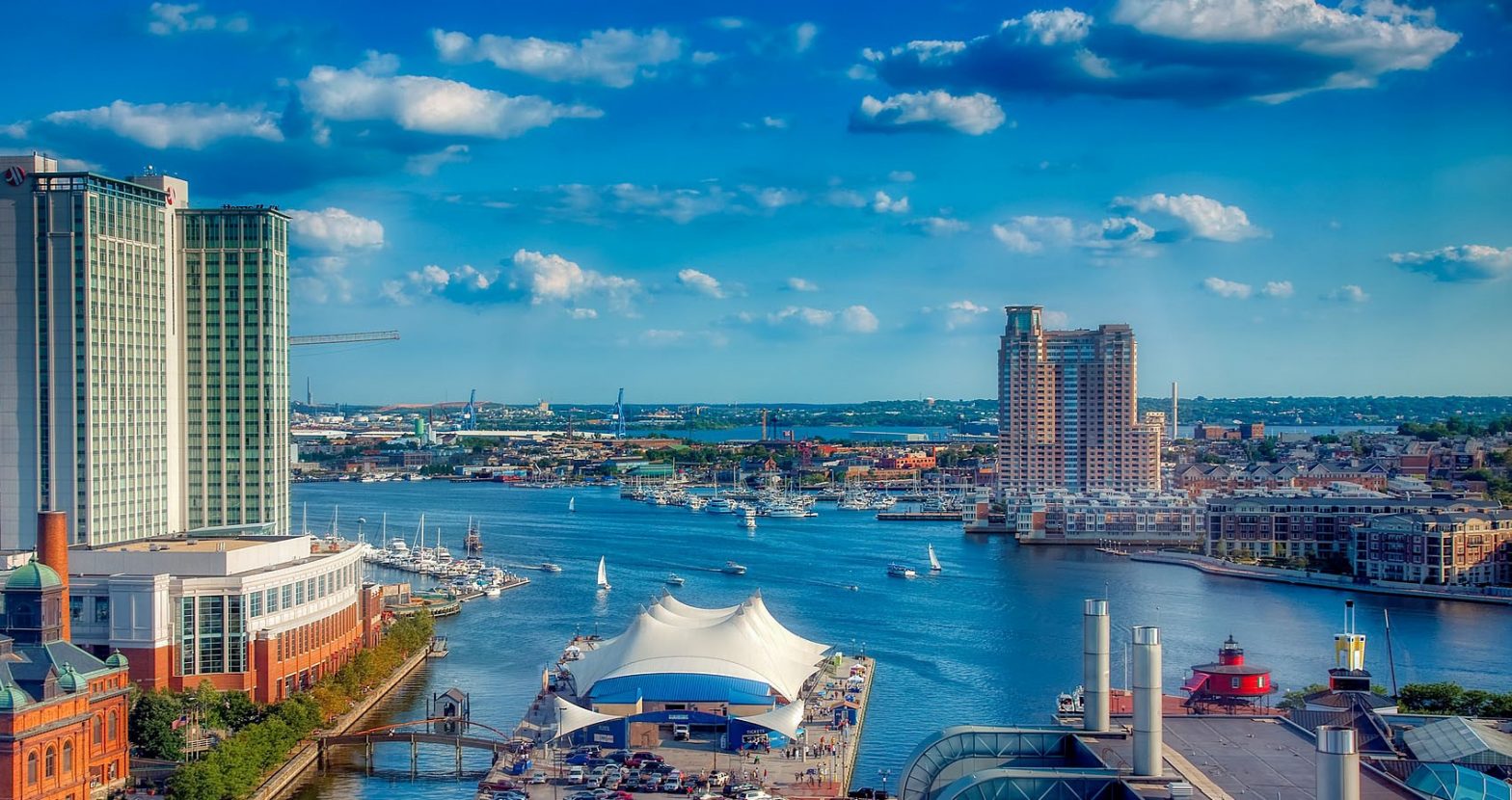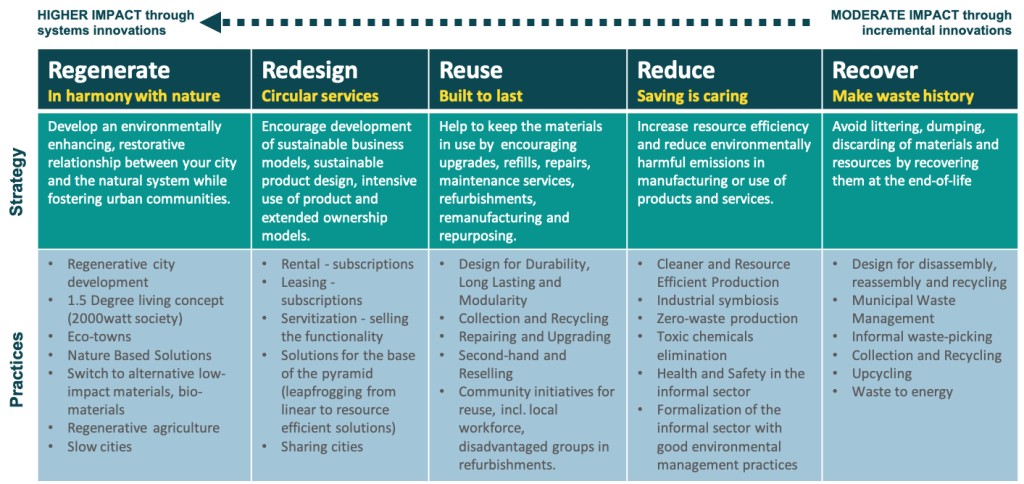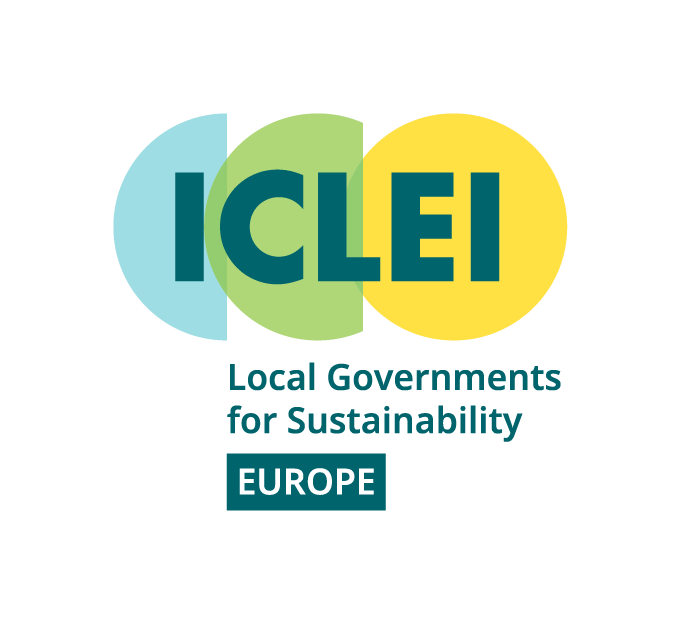
Photo: daring-cities
Putting the circular economy into action
19 October 2020
By Ying-Chih Deng
The concept of the circular economy is gaining traction at the local level but many local governments struggle to find concrete entry points for action. The management of circular economy projects often clashes with the sectoral manner in which administrations and industries are organised. But many industrial legacy cities are focusing on fairness in their sustainable urban transition – aiming to rectify the fact that certain communities were previously overlooked. Through a focus on circular economy, these industrial legacy cities are prioritising the redistribution of resources based on equity.
Today, these ideas and challenges are rapidly put into actions in cities and manifested through diverse practices on the ground. To open this discussion to wider practitioners, Urban Transitions Alliance cities Baltimore, Beijing E-Town and Turku, together with the city of Panaji, participated in the World Circular Economy Forum organised by Finland and the Finnish innovation fund Sitra. This year, the Forum aimed to demonstrate how the circular economy could enhance resilience on a business and society level. This online side event, hosted by the city of Turku and ICLEI, placed a special focus on how cities put circular economy into practice in collaboration with stakeholders.
The journey towards circularity
Circular development can be seen like a journey with five progressive stages: Recover, Reduce, Reuse, Redesign and Regenerate. This circular journey is inspired by ICLEI’s engagement with cities around the world. Simply put, the 5Rs support cities in implementing good waste management and resource efficiency in industries, while facilitating circular business models and finally embedding circularity into the urban metabolism. At the same time, it helps a city to map out the current position of their journey toward circularity, and to identify peer cities and partners for collaboration. The following stories from the city panelists corresponded to different stages of such a journey.

Circular stories from Panaji, Beijing, Baltimore and Turku
Panaji, 100% landfill-free. The capital of Goa shared its circular economy strategy for the waste management programme with the goal of becoming 100 percent landfill-free. The city has set up more than 100 compost stations on the community level. Biogas stations are planned to handle larger waste volumes from restaurants and other commercial entities, with the biogas re-used by the businesses. As for dry waste, the city has devised 16 categories of recycling, and non-recyclables are sent to the cement plant for co-incineration.
Beijing E-Town, Zero Waste City. As one of the 16 zero-waste pilot cities and districts in China, Beijing E-Town is developing a roadmap to control the increase of high-tech industrial solid waste, completely utilise agricultural waste, and prohibit illegal dumping of solid waste. Its “market-oriented method” is a key collaborative method through which district managers interact with investors. With comprehensive infrastructure and environmental policy E-Town attracts energy-saving and environmentally friendly high-tech industries.
Baltimore, Waste to Wealth Program. The programme re-thinks three of the city’s largest waste streams – construction, wood and food waste. The value from these waste streams is recaptured, new jobs and products are created, and neighbourhoods are revitalised. For example, the deconstruction programme in Baltimore doesn’t use traditional demolition techniques;, instead it deconstructs vacant houses in Baltimore brick by brick or board by board. The precious materials are then restored, along with their value. This initiative has grown into a US$4 million business, and created six to eight times more jobs than the normal demolishing process.
Turku, Circular Turku Project. The city emphasises its efforts on engagement with private and academic sectors. Bastu is a business enabler for entrepreneurs and businesses in the Turku region. This enabler collaborates with the University of Turku and business on circular innovation to tap into the growing market of circular business. The Telaketju project was hosted by the Turku University of Applied Sciences and Lounais-Suomen Jätehuolto, a regional waste management company. The project includes developing collection, sorting and refining processes for end-of-life textiles.
Taking the people with you on this journey
Stories reported from the cities and shared with the participants showed how they’ve put the circular economy concept into action. Each case has found a way to deviate from resource-intensive businesses and transform them into circular practices. Interestingly, each story has its own method of outreach and engagement with the people. In Panaji, citizen engagement starts early in the schools. Through the education system, the city of Panaji engages citizens with its new waste management policy. Beijing E-Town focuses on building its partnerships with high-tech industries. Baltimore takes care of the minority groups, while Turku incubates its future circular start-ups. We often found citizen-engagement is also part of the creative circular idea. We saw in Baltimore, for example, how its circular food initiative has identified, trained and collaborated with the ‘Ambassadors’, usually passionate residents, encouraging them to reach out to their communities.
The original version of this blog was published on ICLEI’s CityTalk.
Register for free to tune in to more Daring Cities events from October 7-28 2020











